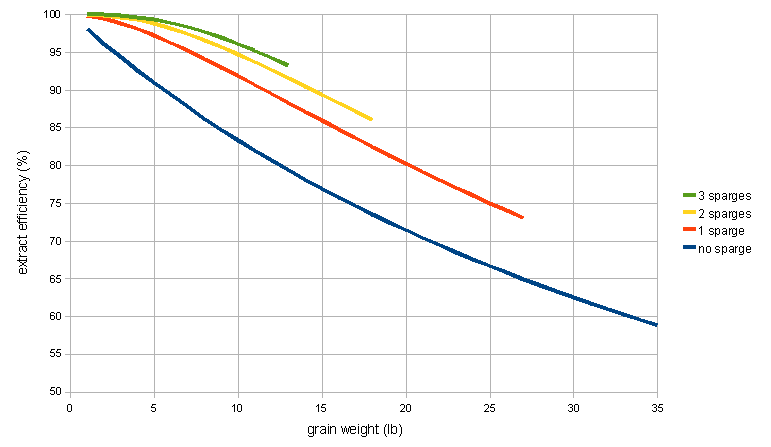What telemarkbrew just said is the ideal way of performing a single batch sparge. Equal runnings size maximizes efficiency given the constraint of two runnings. Three runnings of 2g each would be a little more efficient (2-3%) but requires an extra stir and vorlauf. You decide.
I decided a long time ago that for the extra effort it just wasn't worth the time or effort. I average 82-84% with a single sparge and that's good enough for me!





























![Craft A Brew - Safale S-04 Dry Yeast - Fermentis - English Ale Dry Yeast - For English and American Ales and Hard Apple Ciders - Ingredients for Home Brewing - Beer Making Supplies - [1 Pack]](https://m.media-amazon.com/images/I/41fVGNh6JfL._SL500_.jpg)




























